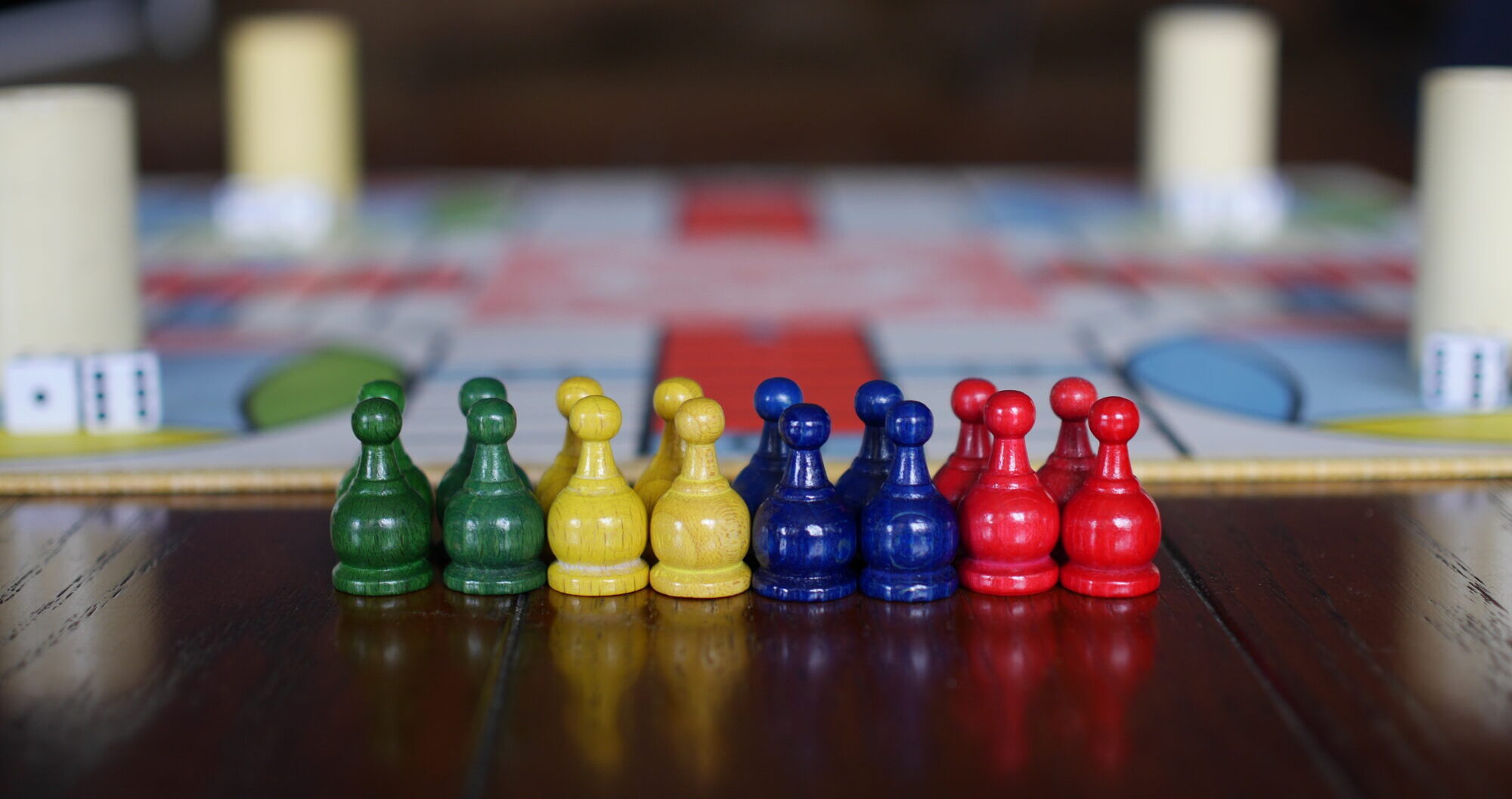If I roll a five, do I have to move my pawn out of base or can I move a different pawn? If you roll any variation of five and have a pawn in base, you must move your pawn out of base.
I rolled doubles. Can I move my blockade together as a blockade on a different space? No. You can never move the same blockade together. You can form a new blockade with different pawns, but you cannot move the same blockade forward. #SorryNotSorry
My opponent has a blockade on my base’s entry spot. If I roll a five, can I knock my opponent’s pawns back home since they’re on my entry spot? No. You are blockaded in until that opponent moves the blockade.
I rolled a five but an opponent’s pawn is on my entry spot. Can I come out of base? Yes! Not only can you come out of base, but you also knock out your opponent. You go Glen Coco!
I have my own blockade on my base’s entry spot. Can I move my pawn out of base if I roll a five? No. Your blockade prevents a pawn from exiting its base. The blockade must be broken up first. Furthermore, if any blockade, including your own, bars entry, any five you roll which could have led to a pawn’s exit from base is forfeited.
-
-
- EXAMPLE: Two of your pawns are blockading your entry space, and two pawns are in base. You roll a 2 and a 3. Because of the “Sanctity of the Five,” which requires fives to be used by based players, you forfeit the complete roll.
- EXAMPLE: Two of your pawns are blockading your entry space, and two pawns are in base. You roll double fives. Because of the “Sanctity of the Five,” which requires fives to be used by based players, you forfeit one five which should have been available to one of your based pawns and you forfeit another five which should have been available to the other based pawn. You then roll again in accordance with the doubles rule.
- EXAMPLE: Two of your pawns are blockading your entry space, and two pawns are in base. You roll a five and a non-five. Because of the “Sanctity of the Five,” which requires fives to be used by based players, you forfeit the five which should have been available to one of your based pawns, and you are required to break up your blockade with the non-five die.
- EXAMPLE: Two of your pawns are blockading your entry space, and one pawn is in base, and one pawn is elsewhere on the board. You roll a five and a non-five. Because of the “Sanctity of the Five,” which requires fives to be used by based players, you forfeit the five which should have been available to the based pawn, and you are required to use the non-five die to either break up the blockade or move the pawn elsewhere on the board.
-
If all my pawns are out of base and I rolled doubles but can’t use all fourteen, can I use the face value on the die? No. It is all or nothing with doubles. You must be able to use all fourteen moves. If you can’t, it’s annoying, but you must forfeit your roll for that turn.
I have a blockade. Can my own pawn move around it? No. Absolutely not. A blockade is a blockade. No. No one, including you can move around it. No.
I knocked an opponent back to base. Go me! Do I have to take the 20-space bonus if I don’t want to? Yes, if able, you must always move 20. That rule applies to other bonus moves as well, i.e., the ten-space bonus for reaching home and the fourteen-space doubles bonus.
If I roll three doubles in a row, can I choose which pawn is sent back to base? No. The closest pawn to home goes back to base. Your pawns already at home are safe.
